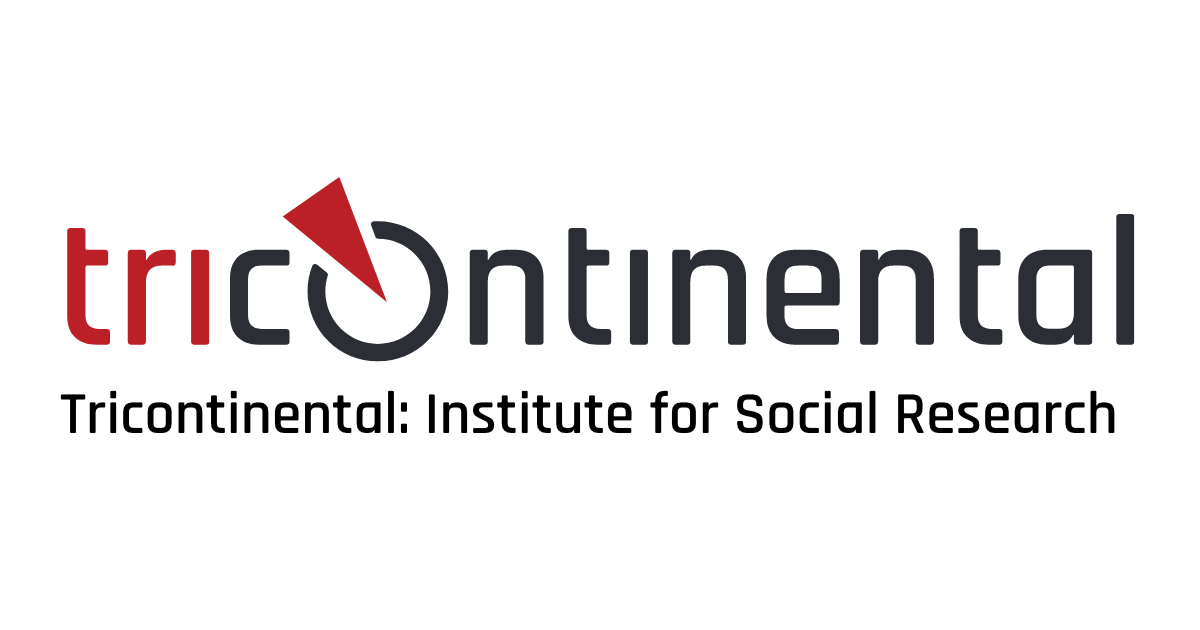mNo edit summary Tag: Visual edit |
Spookfessor (talk | contribs) m (added quotebox) Tag: Visual edit: Switched |
||
| Line 3: | Line 3: | ||
== History == | == History == | ||
In January 1966, the [[Cuba|Cuban]] people hosted the Tricontinental, a conference of [[Revolution|revolutionary]] movements from Africa, Asia and Latin America (Primera Conferencia de Solidaridad de Los Pueblos de Africa, Asia, America Latina). This conference emerged from two dynamics. | In January 1966, the [[Cuba|Cuban]] people hosted the Tricontinental, a conference of [[Revolution|revolutionary]] movements from Africa, Asia and Latin America (Primera Conferencia de Solidaridad de Los Pueblos de Africa, Asia, America Latina). This conference emerged from two dynamics. | ||
| Line 11: | Line 14: | ||
The NAM and AAPSO platforms often collaborated together. They provided the cultural space from which the Tricontinental would emerge. | The NAM and AAPSO platforms often collaborated together. They provided the cultural space from which the Tricontinental would emerge. | ||
At the Tricontinental, AAPSO was expanded into the [[Organization of Solidarity with the Peoples of Asia, Africa and Latin America]] (OSPAAAL), whose secretariat continues to function in [[ | At the Tricontinental, AAPSO was expanded into the [[Organization of Solidarity with the Peoples of Asia, Africa and Latin America]] (OSPAAAL), whose secretariat continues to function in Havana, [[Republic of Cuba|Cuba]]. The Tricontinental put down a marker: peace and [[socialism]] were the goals, and whatever means would lead to this goal had to be utilized. From Havana, OSPAAAL provided the infrastructure for mutual understanding amongst the movements in the three continents. It continues to produce the fabulous magazine Tricontinental, which became famous as the purveyor of emblematic posters that carried forward the message of anti-colonial socialism. | ||
From these histories – of both the NAM and OSPAAAL – came a series of important initiatives, many rooted in the [[United Nations]]. Some of these are inter-governmental organisations (such as The [[South Centre]], based in Geneva), while others have little governmental support. What unites these initiatives is a commitment to [[Global North and South|the global south]] – namely to the countries that continue to struggle against the histories and structures of imperialism – but also to humanity in general. A genuinely South-based social and political philosophy must expand out from the South and embrace the world and its possibilities. | |||
We, at the Tricontinental: Institute for Social Research, are a proud continuation of the heritage of the Tricontinental conference and are honoured to collaborate with OSPAAAL to work towards building a world of peace and justice. We stand, in the words of | {{Quote box | ||
| author = Tricontinental | |||
| quote = We, at the Tricontinental: Institute for Social Research, are a proud continuation of the heritage of the Tricontinental conference and are honoured to collaborate with OSPAAAL to work towards building a world of peace and justice. We stand, in the words of Franz Fanon, with the wretched of the earth to create a world of human beings. | |||
| source = https://www.thetricontinental.org/about/ | |||
| width = 50% | |||
| align = center | |||
}} | |||
== External links == | == External links == | ||
* [https://www.thetricontinental.org Tricontinental official website] | *[https://www.thetricontinental.org Tricontinental official website] | ||
* [https://www.youtube.com/watch?v=dxCj_03MRvc Video: Tricontinental history] | *[https://www.youtube.com/watch?v=dxCj_03MRvc Video: Tricontinental history] | ||
* [https://www.paypal.com/donate/?cmd=_s-xclick&hosted_button_id=MWPEXCCQMZNLL Donate to Tricontinental] | *[https://www.paypal.com/donate/?cmd=_s-xclick&hosted_button_id=MWPEXCCQMZNLL Donate to Tricontinental] | ||
== References == | |||
<references /> | |||
Revision as of 06:37, 16 June 2021

Tricontinental: Institute for Social Research is an international, movement-driven institution focused on stimulating intellectual debate that serves people’s aspirations.[1]
History
In January 1966, the Cuban people hosted the Tricontinental, a conference of revolutionary movements from Africa, Asia and Latin America (Primera Conferencia de Solidaridad de Los Pueblos de Africa, Asia, America Latina). This conference emerged from two dynamics.
- States that emerged out of the anti-colonial movement had, by 1961, created the Non-Aligned Movement (NAM), which included not only radical regimes but also those with a more conciliatory attitude towards imperialism.
- Outside NAM existed movements with unfinished anti-colonial wars of national liberation which had a more radical edge to them and which had been gathered together in 1957 in the Afro-Asian People’s Solidarity Organisation (AAPSO).
The NAM and AAPSO platforms often collaborated together. They provided the cultural space from which the Tricontinental would emerge.
At the Tricontinental, AAPSO was expanded into the Organization of Solidarity with the Peoples of Asia, Africa and Latin America (OSPAAAL), whose secretariat continues to function in Havana, Cuba. The Tricontinental put down a marker: peace and socialism were the goals, and whatever means would lead to this goal had to be utilized. From Havana, OSPAAAL provided the infrastructure for mutual understanding amongst the movements in the three continents. It continues to produce the fabulous magazine Tricontinental, which became famous as the purveyor of emblematic posters that carried forward the message of anti-colonial socialism.
From these histories – of both the NAM and OSPAAAL – came a series of important initiatives, many rooted in the United Nations. Some of these are inter-governmental organisations (such as The South Centre, based in Geneva), while others have little governmental support. What unites these initiatives is a commitment to the global south – namely to the countries that continue to struggle against the histories and structures of imperialism – but also to humanity in general. A genuinely South-based social and political philosophy must expand out from the South and embrace the world and its possibilities.
Tricontinental, https://www.thetricontinental.org/about/